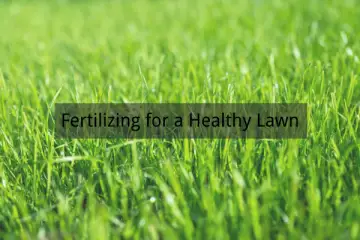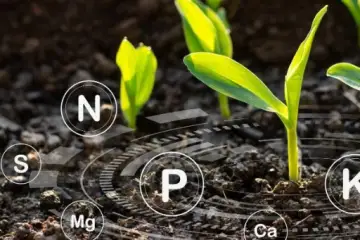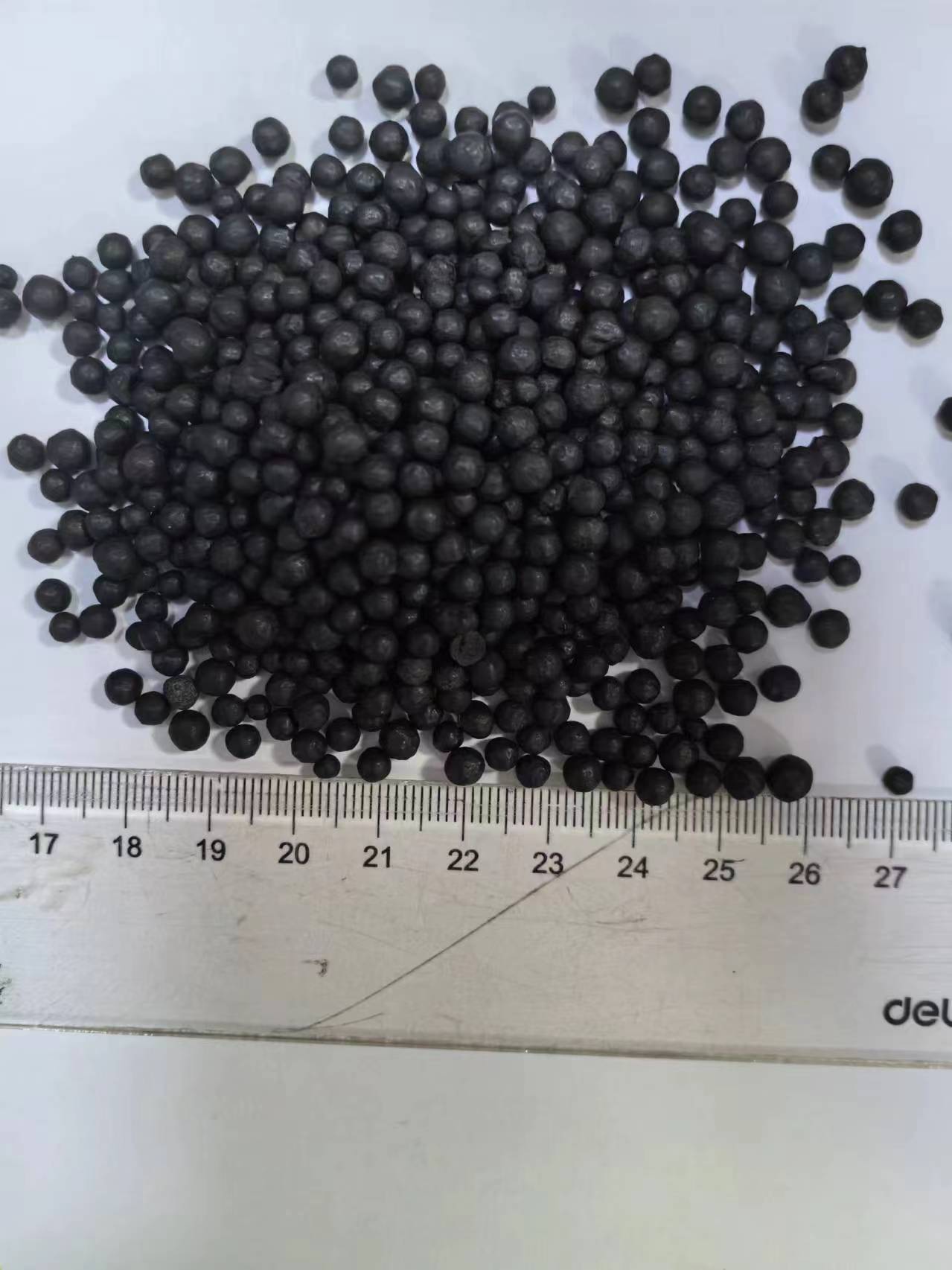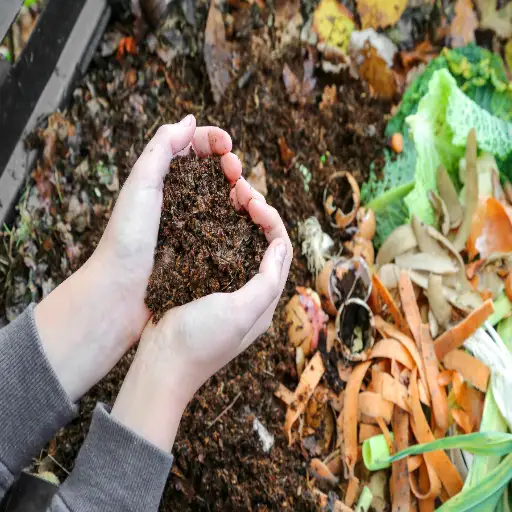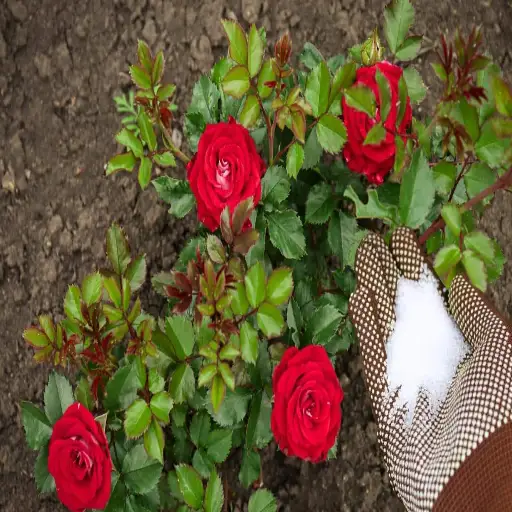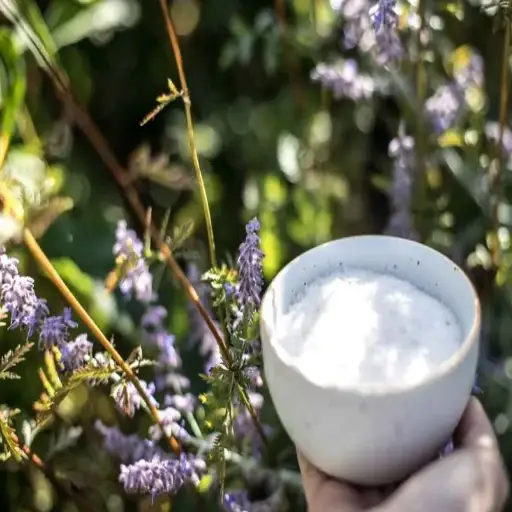The Importance of Choosing the Right Organic Bulb Fertilizer
Choosing the proper organic bulb fertilizer is essential for growing healthy bulbs that blossom beautifully. Because of their capacity to provide necessary nutrients in a safe and environmentally friendly way, organic fertilizers are becoming more popular with gardeners. Unlike synthetic fertilizers, organic ones improve soil structure and enhance nutrient use without causing chemical runoff or harming beneficial soil organisms.
There are many benefits to using organic bulb fertilizers. By releasing nutrients slowly, they ensure that there is a consistent supply of them which is necessary for long-term bulb health and vitality. They add organic matter to soils enhancing their ability to hold moisture as well as air; both important for robust bulb development. Also natural materials are used for making them so that organic fertilizers are less dangerous to the environment and those who handle them than those which contain chemicals.
Dr. Susan Patterson, a sustainable gardening specialist focusing on horticulture, has insisted on choosing organic: “Organic fertilizers not only feed the plants but also nourish the soil. This creates a healthy ecosystem where bulbs can thrive year after year, producing more vibrant blooms.” By going for organic gardeners can keep their gardens productive and beautiful plus support ecological wellbeing too.’’
Categories of Organic Fertilizers for Bulbs
To select the best organic bulb fertilizer, it is crucial to understand the different types available. This knowledge ensures optimal development and health of your bulbs. Below are some top-rated organic fertilizers for flowers such as tulips, daffodils, and lilies.
- Bone Meal:
- Definition: Bone meal is a common type of organic fertilizer made from ground animal bones that have been steamed and is rich in phosphorus and calcium.
- Benefits: It promotes root growth and is ideal for bulbs because it releases nutrients slowly during its decay period, ensuring availability throughout the growing season.
- Blood Meal:
- Definition: Blood meal is an excellent source of nitrogen, obtained from dried and pulverized animal blood.
- Benefits: It helps leafy plants grow fuller, particularly in their early stages, to encourage vigorous growth.
- Compost:
- Definition: An all-purpose organic fertilizer, compost is made from decomposed organic matter such as leaves, kitchen waste, and yard debris.
- Benefits: It improves soil structure, enhances water retention, and releases nutrients slowly, making it a beneficial option for bulb health and sustainability.
- Fish Emulsion:
- Definition: Fish emulsion is a liquid fertilizer derived from processed fish waste products.
- Benefits: Rich in nitrogen and phosphorus, it is quickly absorbed by plants, making it especially useful for bulbs during their peak growing season to boost flower production.
Expert Insight:
- Dr. Elaine Ingham, a soil biologist, emphasizes the importance of selecting the appropriate organic fertilizer based on the plant’s growth requirements and soil conditions. She notes, “Choosing the right organic fertilizers can lead to significant improvements in plant health and bloom quality. For bulbs, slow-release fertilizers like bone meal are crucial for sustained growth and vibrant flowering.”
By using these different types of organic bulb fertilizers, gardeners can effectively nurture their bulbs, leading to healthier plants and more vibrant flowers.
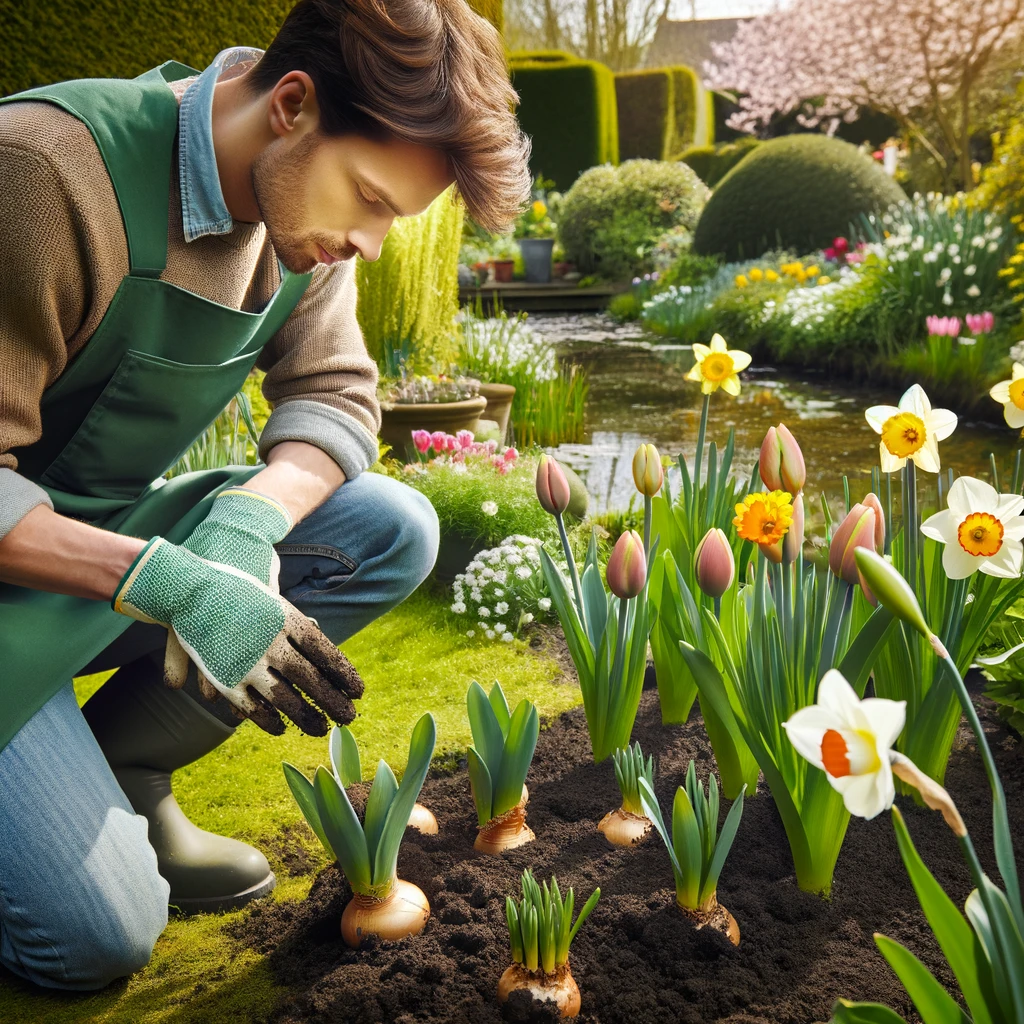
How to Apply Organic Bulb Fertilizer in an Effective Manner
Applying organic bulb fertilizer effectively is crucial for maximizing the health and growth potential of your bulbs. Here are some steps to ensure your bulbs receive the necessary nutrients at the right time and in the right manner:
- Pre-Planting Application:
- Work the fertilizer into the soil before planting the bulbs. This helps the nutrients mix well with the soil, making them readily available to the roots once the bulbs are planted.
- Bulbs such as tulips and daffodils, which are planted in the fall, benefit from an initial nutrient boost. Applying fertilizer at planting time helps establish strong root systems.
- Top-Dressing During Growth:
- Apply a light top dressing of organic bulb fertilizer when shoots start to emerge in the spring. This provides additional nutrients to support leaf and flower development.
- Be cautious not to over-fertilize, as this can lead to excessive foliage growth at the expense of flowering.
- Application Techniques:
- Broadcasting: Spread the fertilizer evenly around the planting area and gently rake it into the top layer of the soil.
- Spot Application: For individual plants or smaller bulb clusters, apply the fertilizer directly near the base of each plant, avoiding direct contact with the foliage to prevent potential burns.
- Watering After Application:
- Water the area thoroughly after applying the fertilizer. This helps dissolve the fertilizer, allowing the nutrients to seep down to the bulb roots.
- Proper watering is essential, especially in dry conditions, to ensure that the nutrients penetrate deeply where they are most needed.
- Monitor and Adjust:
- Keep an eye on your plants’ growth and flowering. Signs of under-fertilization include small flowers or weak stems, while signs of over-fertilization may include lush leaves with few flowers.
- Adjust your fertilization practices based on the specific needs of your garden and local environmental conditions.
Following these guidelines will ensure that your organic bulb fertilizer is used effectively, leading to healthier plants with more vibrant blooms and a more beautiful garden overall.
DIY Organic Bulb Fertilizer Recipes
Creating your own organic bulb fertilizer can be a rewarding experience that connects you more deeply with your garden and provides your plants with essential nutrients in an eco-friendly way. Here are some simple DIY recipes using everyday household and garden waste:
- Coffee Grounds Fertilizer:
- Ingredients: Used coffee grounds.
- Preparation: Collect your used coffee grounds and apply them directly at the base of your plants. Coffee is high in nitrogen, which promotes quick foliage growth.
- Application: Best used as a top dressing during the growing season to enhance leaf development.
- Eggshell Fertilizer:
- Ingredients: Eggshells.
- Preparation: Thoroughly clean and air-dry the eggshells, then grind them into a fine powder using a blender or a pestle and mortar.
- Benefits: Eggshells are rich in calcium, crucial for the growth of all plant cells and helpful in preventing blossom end rot in bulbs.
- Application: Mix the powdered eggshells into the soil at planting time or sprinkle around the base of your plants.
- Banana Peel Fertilizer:
- Ingredients: Banana peels.
- Preparation: Cut banana peels into small pieces and bury them 1-2 inches deep in the soil around your plants.
- Benefits: Banana peels decompose quickly, releasing potassium and phosphorus, essential for flowering and fruiting processes.
- Application: Ideal for flowering bulbs like tulips and lilies, apply before the bloom period to maximize benefits.
- Compost Tea:
- Ingredients: Compost.
- Preparation: Fill a bucket with water and add a shovel of finished compost. Stir well and let it steep for a day or two, stirring occasionally.
- Benefits: Compost tea is a gentle solution that feeds the soil and plants with a variety of beneficial nutrients.
- Application: Use as a liquid fertilizer for your bulbs, best applied during the peak growing season.
Pro Tips:
- Always ensure that the materials you use are free from molds and chemicals.
- Monitor how your plants respond to homemade fertilizers and adjust your recipes and application methods accordingly.
By using these simple, cost-effective recipes, you can create your own organic bulb fertilizer that will help your garden flourish naturally and sustainably.
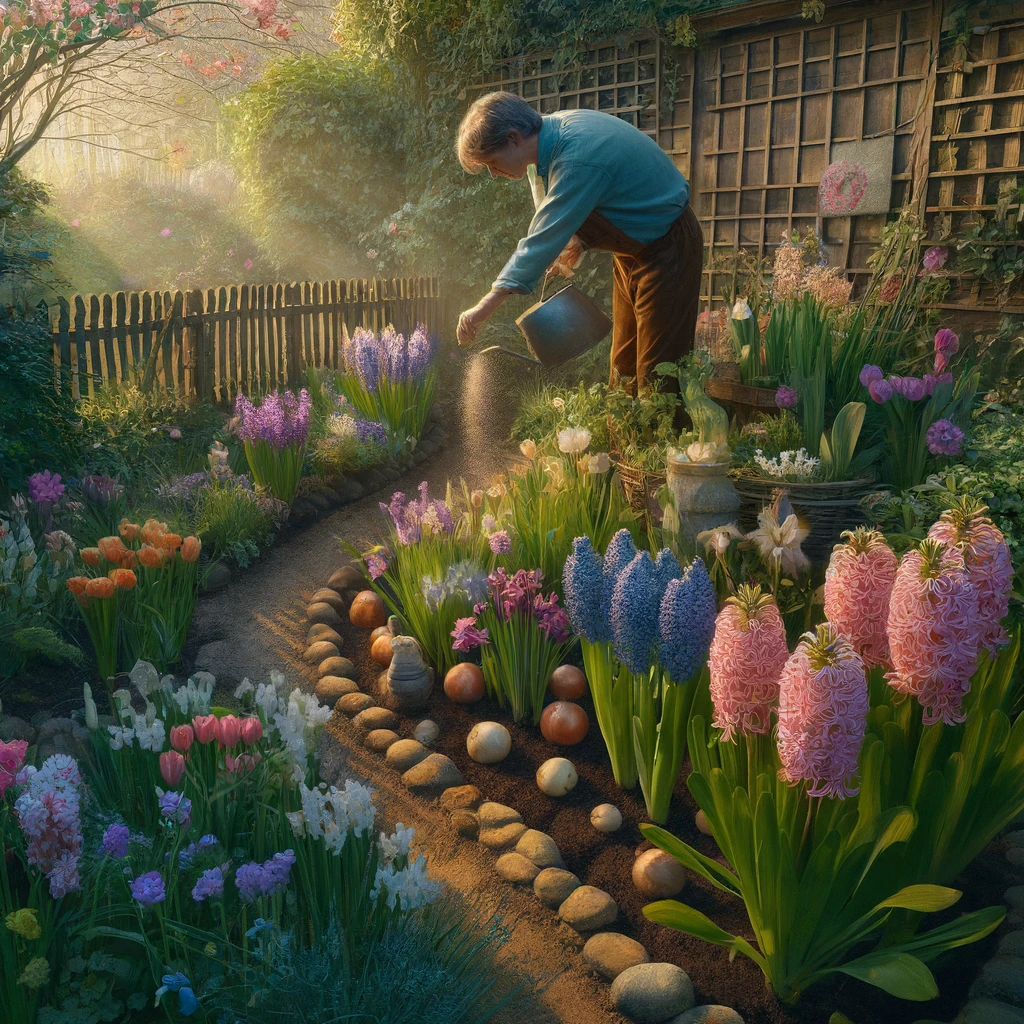
Case Studies: Success Stories Using Organic Bulb Fertilizer
These case studies illustrate the practical benefits of using organic bulb fertilizer across various settings, demonstrating how different approaches can lead to remarkable growth and health improvements in bulbs.
- Small-Scale Gardening Success:
- Background: In Vermont, a novelist and gardener used a combination of homemade compost and bone meal to fertilize her tulip and daffodil garden.
- Result: She reported that her bulbs bloomed earlier and more vibrantly than ever before, attributing this success to the slow-release properties of the organic fertilizer, which provided sustained nutrition over the growing period.
- Large-Scale Agricultural Implementation:
- Background: An ornamental bulb farm in Southern California implemented a regimen alternating between fish emulsion and green compost as fertilizers.
- Result: The farm observed a 25% increase in bulb size and enhanced color vibrancy in flowers. Researchers on the farm attributed these improvements to the effective nutrient delivery and enhanced soil health provided by the organic fertilizers. Additionally, they noted a decrease in pest problems due to increased microbial activity in the soil.
- Urban Flower Shop Project:
- Background: A local flower shop began a project to grow their own organic bulbs using waste materials like eggshell powder and coffee grounds.
- Outcome: The bulbs grown in this organic mixture developed stronger root systems and had a higher survival rate compared to those grown in traditional potting mixes. This project demonstrated that organic fertilizers could significantly benefit plant growth even in small, controlled urban environments.
These examples highlight that whether on a small or large scale, indoors or outdoors, the right organic bulb fertilizers can significantly impact plant health, leading to beautiful and sustainable blooms. These case studies serve as a testament to the effectiveness of organic practices in promoting healthier plants and a more sustainable environment.
Conclusion: Making the Right Choice for Your Garden
As we conclude our survey of organic bulb fertilizer, it is clear that selecting the right type and applying it properly is crucial for enhancing both the health and beauty of your garden. Expert opinions and case studies underscore that using organic fertilizers not only promotes more robust plant growth and vibrant blooms but also benefits the environment significantly.
Recap of Key Points:
- Organic bulb fertilizers like bone meal, compost, and fish emulsion deliver nutrients in formats that plants can easily utilize.
- Proper application of these fertilizers supports bulbs in developing deep, healthy roots and producing robust growth and beautiful flowers.
- DIY fertilizer recipes offer a cost-effective and environmentally friendly option for gardeners.
Encouragement for Future Practices: Gardeners are encouraged to persist in their use of organic fertilizers. Every garden is unique, requiring a personalized approach to address its specific conditions and challenges. Choosing the right fertilizer, considering the unique needs of the plants, soil conditions, and environmental factors, is foundational to this approach. Adopting organic gardening practices enhances the sustainability of agriculture, supports a thriving ecosystem, and enriches both the aesthetic and emotional rewards of gardening.
By committing to organic methods, such as using organic bulb fertilizer, gardeners not only nourish their plants but also contribute to the health of the planet. This sustainable approach ensures that gardening efforts are both beautiful and environmentally responsible.
Here are three references that could be useful:
- Oregon State University Extension Service, which offers extensive information on organic fertilizers and their application in gardening.
- National Gardening Association, which provides a range of articles on organic gardening, including how to select and use organic fertilizers.

